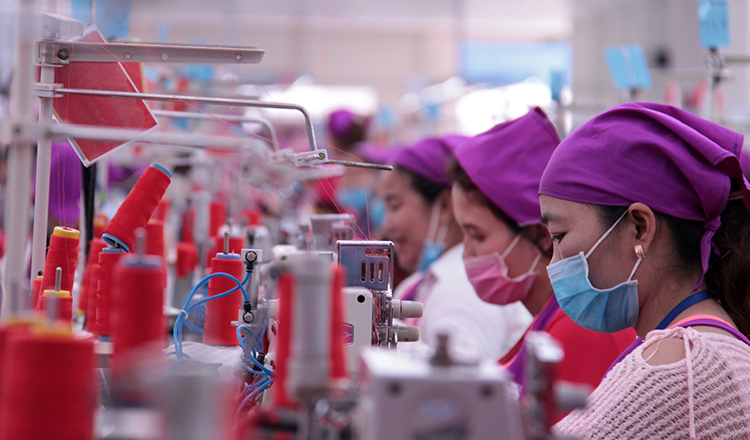Cambodia: RAM maintains poor ratings
Malaysian credit rating agency RAM reaffirmed Cambodia’s poor ratings on the global and Asean scales, pointing to the country’s poor business environment and weak institutional capacity.
The ratings – ‘gB1(pi)/stable/gNP(pi)’ on the global scale and ‘seaBB3(pi)/stable/seaNP(pi)’ on the Asean scale – mean the country is facing a lack of development, coupled with a poor business climate and low institutional capacity. These factors make the country “susceptible to external economic shocks”, according to RAM.
Medium-term challenges to the local economy include a worsening political situation and the gradual phasing out of grants and aid.
“Cambodia faces increasing external political challenges amid the dissolution of the country’s main opposition party and the imposition of a five-year political ban on 118 of its members.
“Cambodia may, as a result, have to contend with US and EU trade sanctions, as well as an asset freeze and travel bans on certain Cambodian officials,” said RAM.
On the positive side, the country’s economic performance continues to be robust, with strong capital inflows in the form of FDI and development aid.
The country’s vigorous GDP growth is driven by a thriving tourism sector and by strong exports, the agency noted.
Esther Lai, RAM’s head of sovereign ratings, said the country’s political woes will be felt in the business sector.
“If trade sanctions are imposed, this will severely affect trade, investor sentiment and the overall economy, given the country’s dependence on the EU and the US as export destinations,” Ms Lai said.
David Van, executive director of Deewee Consultants, said future economic growth will be conditional to the country’s ability to improve the business environment, including its level of competitiveness.
Mr Van noted that since the early 1990s all of the country’s exports have been fully “subsidized” by the Everything-but-arms (EBA) and the Generalized System of Preferences (GSP) schemes.
“Without those ‘privileges’, Cambodia won’t be able to compete with neighboring countries as they have achieved better economies of scale and their research and development capabilities
far exceeds ours,” he said.
However, Mr Van said the current political situation should not be a key factor in determining the country’s sovereign ratings, as the effects of the current political turmoil won’t necessarily spill over into the business sector.
According to RAM, amid uncertainties in the lead-up to a general election this year, proposed foreign direct investments contracted by 30 percent during the first half of 2017.
Additionally, excessive powers accorded to the ruling party could possibly disrupt check and balances in the National Assembly.
On the other hand, Cambodia’s GDP growth is expected to remain steady in 2018, thanks to a buoyant garment manufacturing industry and a burgeoning tourism sector.
“That said, we recognise that as the economy progresses, preferential treatment accorded to Cambodia will gradually taper. These include tariff-free exports to the EU under the Generalised System of Preferences, and substantial grants and official loans extended by multilateral and bilateral creditors. As such, the government has grown its revenue over the years to reduce its reliance on grants and aid,” said RAM.
Cambodia’s fiscal deficit widened to 2.8 percent of GDP in 2016 as a result of higher expenditure, mainly stemming from salaries and wages.
“Cambodia’s non-development spending has trended upwards while capital expenditure continues to slide. Given the country’s infrastructure needs and development lag, capital expenditure is in our view vital to improving and promoting a better business environment,” RAM said.
Source: http://www.khmertimeskh.com/50106086/ram-maintains-poor-ratings/


 Thailand
Thailand




